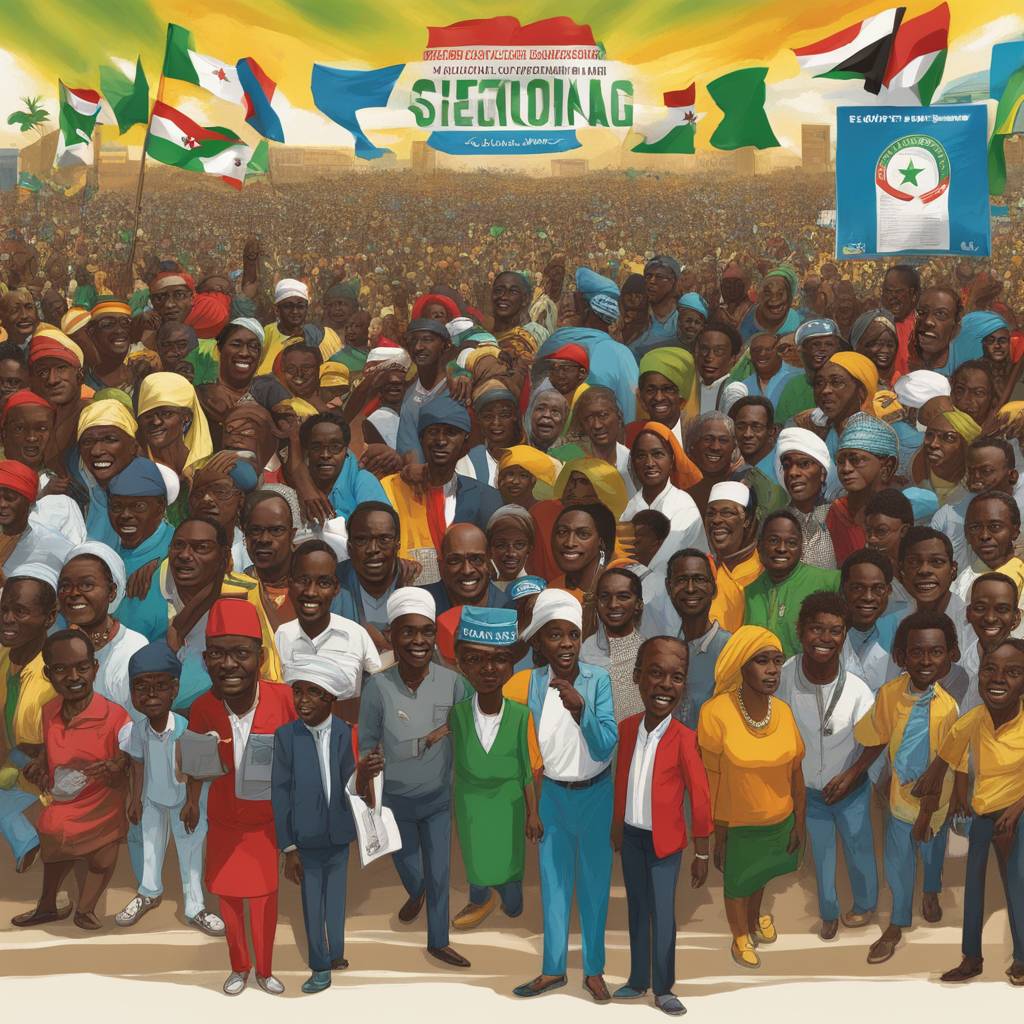As Senegal prepares for elections, more than seven million citizens are registered to vote to choose a new president after Macky Sall’s 12-year tenure. With 19 candidates vying for the position, this election marks the first time in the country’s history that none of the candidates is an incumbent president. Despite the lack of a clear frontrunner, the fact that the elections are happening at all comes as a relief following a political crisis caused by Sall’s attempt to delay the vote to December. This move sparked deadly protests and pushback from critics who saw it as an attempt to bypass term limits.
The main candidates in the election include Bassirou Diomaye Faye and Ousmane Sonko, both former tax administrators who have promised to tackle corruption and promote a more equitable distribution of resources. Another candidate is former Prime Minister Amadou Ba, who represents the ruling party and stands for policy continuity. Former Prime Minister Mahammed Boun Abdallah Dionne and two-time Dakar mayor Khalifa Sall are also running, along with businesswoman Anta Babacar Ngom, the only female candidate. While these candidates have made bold promises, analysts caution that their rhetoric may soften if they come into power.
Key issues facing Senegal include economic inequality, with many seeing wealth as not being equally distributed despite economic growth. Youth unemployment is high, with three out of 10 young Senegalese unable to find work. The country has also faced a surge in migration attempts, with nearly 1,000 deaths recorded in the first half of 2023. A lack of checks and balances and excessive presidential power are also major concerns, with candidates campaigning on the need for institutional reforms to prevent future crises.
On the eve of the elections, Senegal has seen economic success under Sall, with steady growth and increased foreign investment. Major reforms under an IMF loan and new natural gas projects are expected to boost growth further in the coming years. Sall has also positioned Senegal as a stable and attractive destination for investors, contrasting with neighboring countries experiencing military coups. However, domestic political turmoil, including protests, internet shutdowns, and human rights violations, has marred Sall’s image in recent years. Despite attempts to make a smooth exit, the president’s reputation has suffered due to the political unrest.
As Senegal prepares to vote for a new leader, the outcome of the election will have significant implications for the country’s future trajectory. From addressing economic inequality and unemployment to reforming institutions and balancing presidential power, the new president will face a range of challenges. The candidates’ promises to tackle corruption, promote accountability, and enact reforms will be put to the test once they assume office. Ultimately, the election represents a critical moment for Senegal to reaffirm its commitment to democracy and political stability in a region often fraught with volatility.













